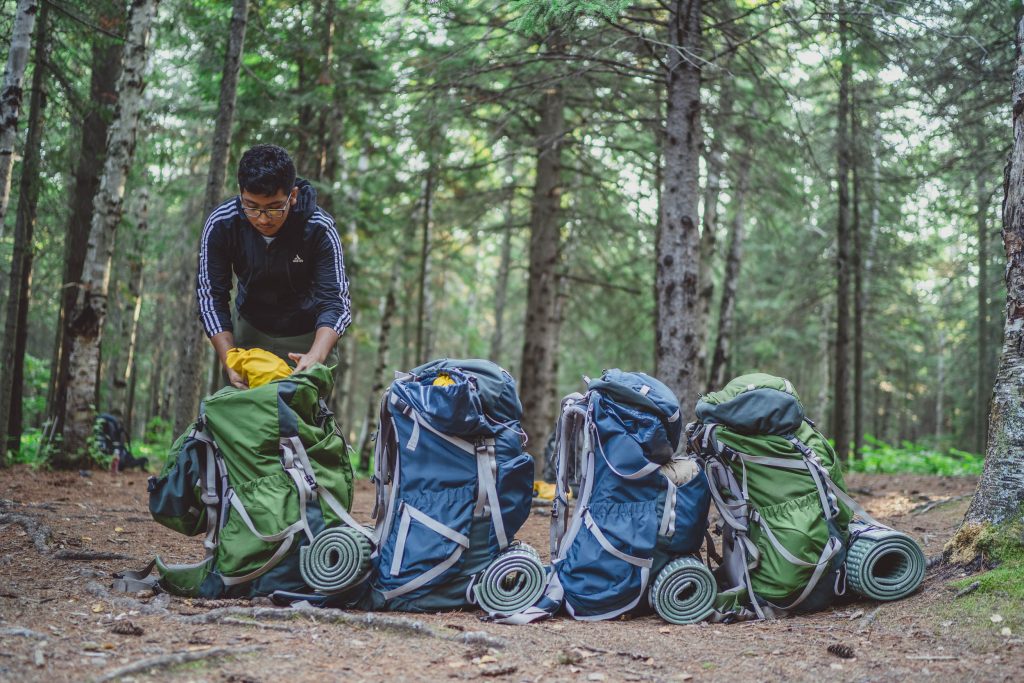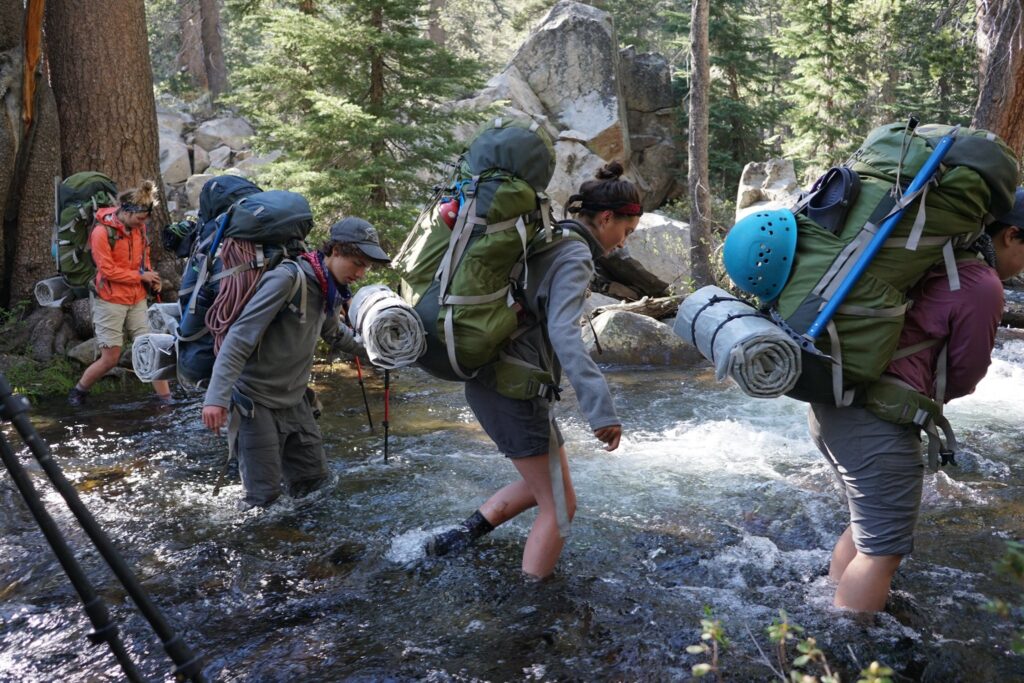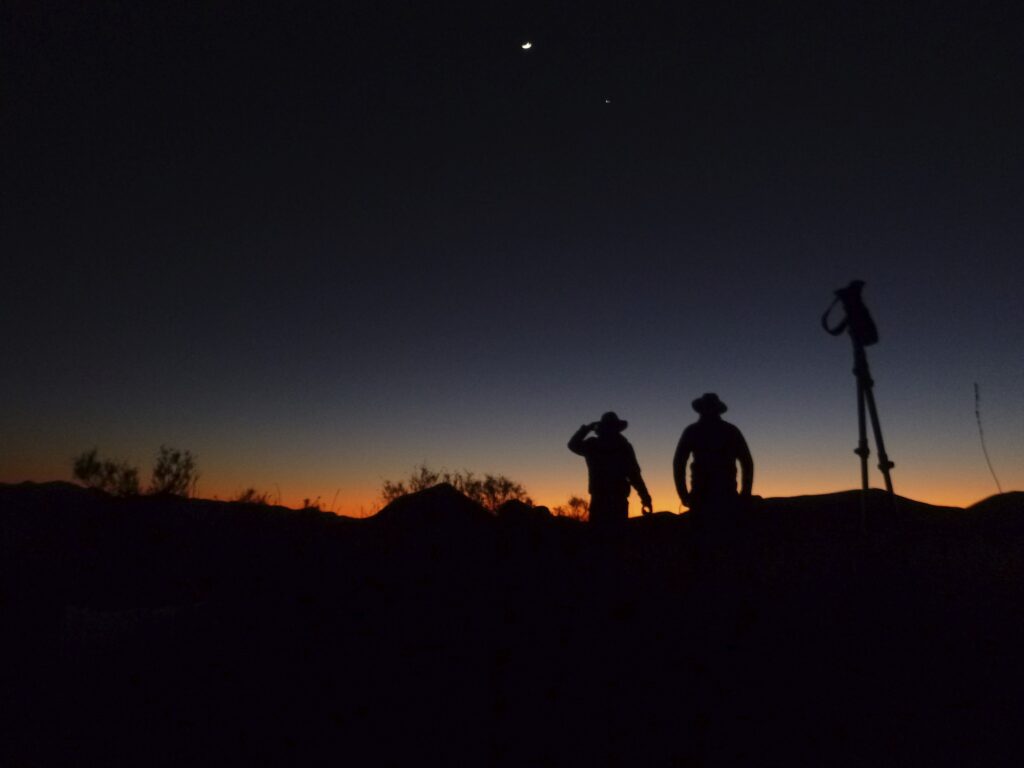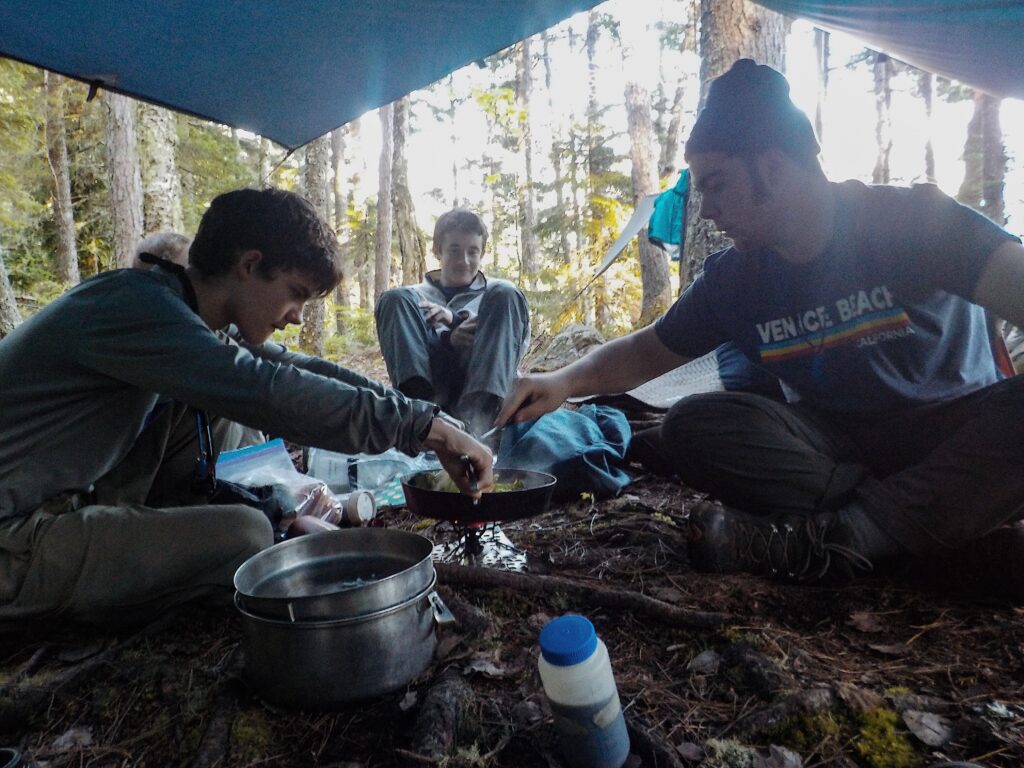Every piece of gear packed for an Outward Bound expedition is important, but when those pieces accidentally go missing, the creative solutions that emerge often outweigh the loss.
An Outward Bound expedition often starts with a meticulous process of checking, double-checking and triple-checking that everything is packed. It’s one of the first activities many Outward Bound students encounter—the Duffle Shuffle. Instructors work with each student to identify the necessary and essential items for the expedition. Oftentimes, packing less than the student thought necessary and leaving more behind. As items once seen as essential at home no longer apply, like deodorant and hair conditioner, they’re replaced with more unexpected items, such as a compass and a bug net, that rapidly gain novel importance.
That backpack that we check and double-check sometimes feels like our one tie to comfort and necessity in the backcountry. In this way, outdoor expeditions can often serve as testing grounds for creative ways of adapting and responding to loss, especially when one of those items goes missing or is forgotten. An experience that often reminds me of the poem One Art by Elizabeth Bishop, read it here.

Photo by Jon Reynolds
Bishop writes that “The art of losing isn’t hard to master;/ so many things seem filled with the intent/ to be lost that their loss is no disaster.” Bishop describes losing door keys, losing time, losing precious mementos, a sense of place and relationships. She urges her readers to “practice losing farther, losing faster.” Practice becomes a means of adapting to loss in ways that do not bring disaster.
“The Art of Losing” On An Outward Bound Course
I lead backpacking and canoeing expeditions in Maine’s woods with Outward Bound. On all Outward Bound courses, Instructors carry extras of all necessities. Backup clothes, paddles, flotation devices, expedition documents, watches, headlamps, batteries, fuel—precisely to mitigate risks so that there is no disaster. Yet we also recognize that some of the most impactful experiences come through unforgettable natural consequences and that oftentimes, creative and inventive connections and solutions emerge from loss. So when we’re packing up camp every morning and pitching a tent down in a new place each night, and an item inevitably gets left behind or lost, we often create space to see what type of creative solutions emerge among our students.
Here are three occasions when a wilderness expedition has taught me and my students how to be a creative master of the art of losing!

Photo by Rachel Drattler
1. Getting the Boot
One of my most memorable losses came when I myself was a student. It was a pair of boots, tied together and swept away by a rapid river—it’s a long story. There I was, in damp socks in the reeds, rapidly and unwillingly having mastered the art of losing arguably one of the more important elements of a hiking expedition. Not too long after, our group met a climbing party, whose members all carried several pairs of shoes. One member was generous enough to offer me a pair of sneakers!
Sometimes, the loss of crucial gear leads to unexpected interdependence. This often brings a crew closer together and can even lead to impactful encounters with other groups traveling in the wilderness. Another unnerving loss can be the headlamp, which becomes crucial after dusk. Yet this loss, too, often leads to the generous invention of a buddy system, allowing crew members to notice more than ever before how we rely on each other to get to the places we want to go.

2. Losing Track of Time
With cellphones left behind at basecamp, Outward Bound students often carry their own watch. Other times, for the delights of camaraderie and teamwork, a crew will carry one group watch. This system becomes less delightful when that one watch is then lost. The crew then must become immanently attuned to the passing lights of the day. A natural consequence, that by necessity, is no disaster. I have seen watch-less students ‘accidentally’ wake up naturally at dawn and catch a glittering sunrise or have an unlikely encounter with a beaver. Crews begin to develop creative solutions to wake everyone up, and oftentimes, wrap up evening camp chores in tune with the darkening sky—a skill hard to master even with a watch!

3. Dampened Expectations
In addition to a group watch, crews often carry a Group Journal, a central location where maps, route notes, and crucially, the menu, can be housed. So when the Group Journal is improperly guarded and ends up, somehow sopping at the bottom of a boat (It wasn’t me!), well it’s time to get creative.
After the carefully planned menu had long since become inadvertent compost, the cooks of the day asked each other if Grapenuts and dehydrated beans would make a complete meal. A crew member with more improvisational culinary skills offered to step in and everyone was thankful. After a passing sense of despair, oftentimes losses on expedition lead to developing new skills amid constraints.
Similarly, one morning one of my crews woke up to a canoe that had been swept away by an overnight storm. A loss due to an improper bowline knot around a tree and resulting in an escapade to recover the boat in the opposite direction from our route. The mission took most of the following day, but needless to say, everyone in the crew tied a perfect bowline knot for the rest of the journey.

Photo by Charis Nichols
Try It Now!
This year, many of us are preparing for our summer expeditions after a year replete with loss. Going on a wilderness expedition is an exchange of certain familiarities of home for the abundance of new experiences. If you’re planning to head out on an expedition this summer, try an experiment and heed Bishop’s advice. As a means of preparation at home, interrupt normal routines by extracting one element—choose one thing to lose and see what creative solutions emerge. Perhaps you take a day without looking at the time, using your sense of light, sound and the rhythms around you to guess the time. Or you spend a night sleeping outside the bed where you normally sleep. Perhaps you take concerted time away from a phone or computer. When we come together on an expedition, we will know well that “the art of losing isn’t hard to master.”
About the Author
Nora Spicer has instructed backpacking and canoeing courses at the Hurricane Island Outward Bound School since 2014. She has an MA in Environmental History from Harvard University and teaches Place-based US History (honoraspicer.com).




